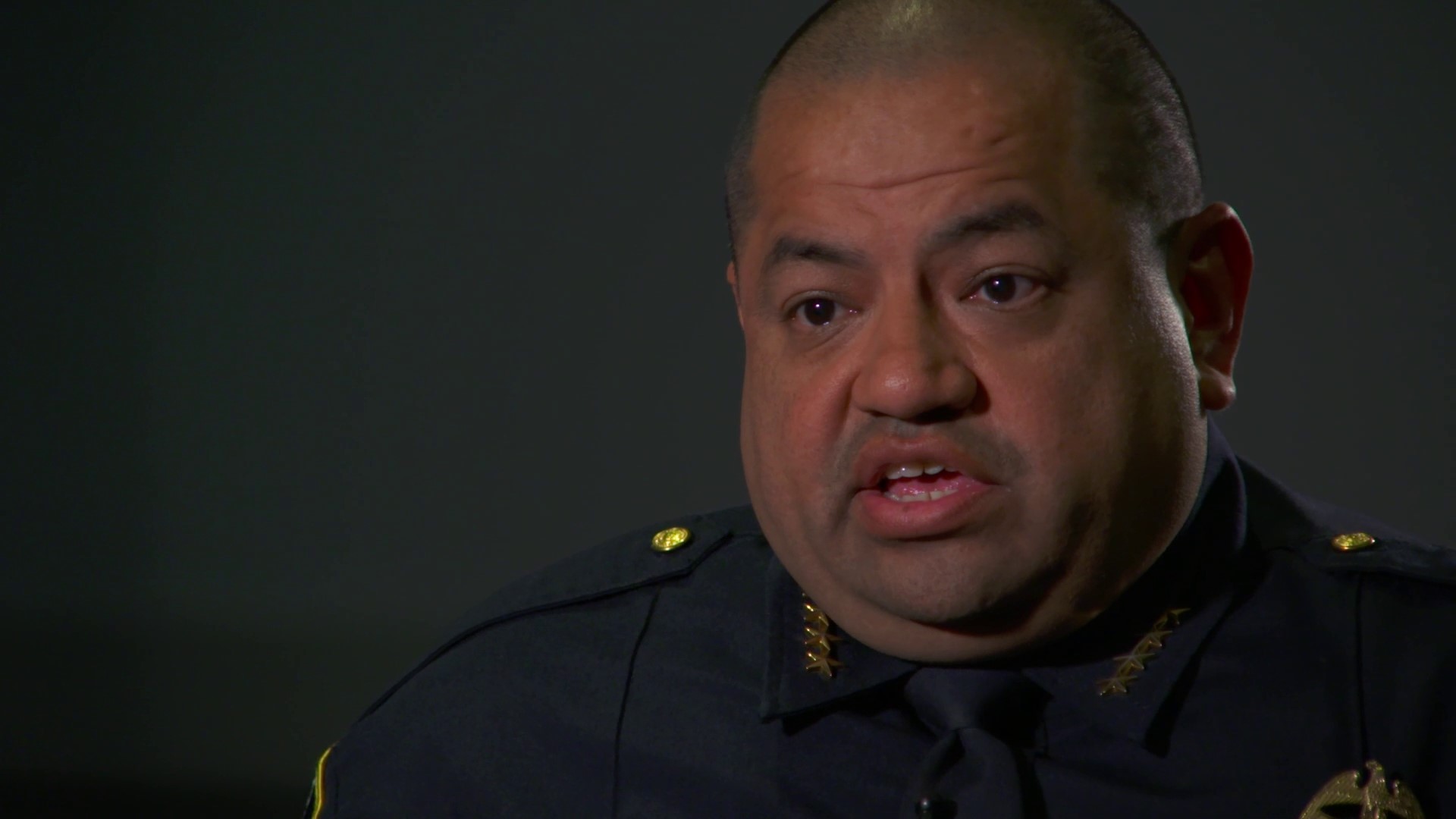SEATTLE — The seemingly random killing of a pregnant woman and her infant child in Seattle’s Belltown neighborhood has garnered national attention and put a spotlight on public safety and gun crime in the city.
Eina Kwon, 34, was shot four times, including in the head and chest, at the intersection of 4th Avenue and Lenora Street. She was rushed to Harborview Medical Center but both she and her baby, who was emergently delivered at the hospital, died.
In the aftermath of Kwon's death, residents have turned toward city leaders like Seattle Police Chief Adrian Diaz and Mayor Bruce Harrell, demanding action on public safety.
KING 5 sat down with Diaz to talk about what the department is doing, and to ask him: Is Seattle safe?
"I believe it is safe," Diaz said.
However, he acknowledged in the aftermath of the Belltown shooting tragedy, others may not believe so.
"We have to gain that trust back," Diaz said.
Diaz pointed to numbers from the first five months of 2022 and 2023 that show shootings have fallen from 78 last year to 67 this year.
When looking at just shooting deaths in that same time frame, last year 15 people had died in shootings in Seattle, while that number is 18 as of the end of May this year.
Last week, Diaz introduced a new Community Violence Task Force, the focus of which is to help make sure people are being held accountable for committing acts of violence. So far, Diaz said there seems to be some improvement.
“We actually saw some success during the weekend where we saw a reduction in shootings,” Diaz said. “But as we get into the summer days, sunnier days, that will be really where we’re pulling all of our resources to make sure that this (taskforce) is fully up and running and functional.”
Diaz said the task force is pulling resources from existing specialty units that are focused on robbery, human trafficking, drug sales, gun crime and even the SWAT team. The task force will focus the efforts of 50 to 60 officers and detectives in Seattle’s Central District, Aurora, the South End and Downtown.
But for a department that has been plagued with staffing shortages and trouble recruiting new officers, KING 5 asked, how will that impact the rest of the department? Do Seattle police have the manpower?
“It’s going to be very difficult for some of our units,” Diaz said. “But we’re hoping that if we can actually make an impact, it actually reduces some of those officers’ and detectives’ workloads.”
Diaz said he hopes the task force’s work can lessen the burden on some of his other units by making arrests and getting weapons off the streets.
“That should be reducing robberies, that should be reducing human trafficking and so on,” Diaz said. “So it’s kind of, you’re trying to play with the pieces you have to try and reduce overall violence.”
Diaz said the department is still managing a shortage of about 360 police officers, but Diaz said he believes his current officers are finding ways to do more with less.
“They’re working a lot of overtime, and we’re already making more gun arrests than we’ve ever made,” Diaz said. “I mean, we’ve recovered 629 guns this year, which is more guns than we’ve ever had in 15 years. So even being short-staffed, our officers are doing amazing work.”
Mental health crises
In court documents, police who interviewed the suspect in the Belltown shooting said it was apparent that the suspect was having a mental health crisis, or behaving in the manner of someone who was. At a time when mental health resources are badly needed, yet hard to come by, Diaz said his department is fielding about 11,000 calls a year just for people who are in crisis.
“A majority of those are not criminal-related,” Diaz said.
Diaz said in those cases often the department’s role is to “involuntarily treat” someone, meaning they take them to the hospital. Diaz said about 33% of those 11,000 calls go into treatment.
“We actually are trying to get people resources and services,” Diaz said. He said the department is actively working with a crisis intervention community committee to try and get more nonprofits, NGOs and caseworkers involved in addressing crisis situations.
“That’s part of our overall goal is to actually reduce some of those calls for service (so we aren’t) actually taking it,” Diaz said.
Calling, but no response
However, in some cases, people calling due to a person in crisis don’t get a police response. What should people do then?
“Call again,” Diaz said. “Now we know that pain, you know, it’s going to be difficult to respond to every crisis call, but I would say call again.”
Other types of calls in Seattle that residents have complained go unacknowledged include property crime; an issue that has been a constant frustration for downtown business owners. Car-related crimes, like break-ins and vandalism may also not get an officer response.
Diaz said he still wants people to report property crimes, just not through a 911 call.
“We’re still going to be invested in that,” Diaz said. “What we do is we ask people to do online reporting, so that way it puts a case in a queue.”
Diaz said property crimes can take longer to respond to because the department triages calls, responding to the most urgent requests first, with a priority on human life. Diaz said they’re still putting cases together on those incidents, and making arrests when they can establish who is responsible, but the department has to focus “really heavily” on shootings.

